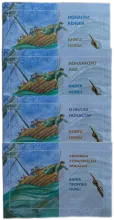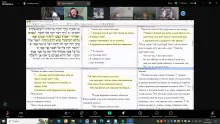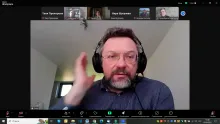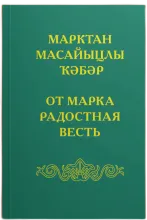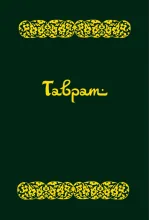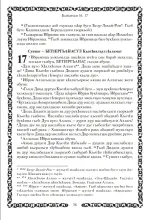book-of-ruth-in-abkhaz
The Institute for Bible Translation has published a translation of the Old Testament book of Ruth in the Abkhaz language. Previously, the book of Jonah (2023) and a collection of Gospel Parables (2023) had been published in Abkhaz. This edition was printed in Abkhazia’s capital city, Sukhum (a.k.a. Aqwa).
The Abkhaz language belongs to the Abkhaz-Adyghe branch of the Northwest Caucasian language family. It is one of the official languages of Abkhazia, together with Russian, and is spoken primarily in Abkhazia and Turkey.
jonah-in-four-romani-languages
workshop-on-poetic-discourse-in-turkic-languages
A workshop on "Discourse in the book of Proverbs in Turkic languages," organized by the Institute for Bible Translation, was held in Tashkent on April 21-24. Translators and exegetical advisers from the Altai, Balkar, Siberian Tatar, Khorazm and Kyrgyz Bible translation projects participated.
webinar-on-the-book-of-jeremiah
reprint-of-six-psalms-in-yakut
nenets-scripture-distribution-on-reindeer-herders-day
IBT actively promoted our Nenets Scripture translations during Reindeer Herders’ Day, one of the most vibrant cultural celebrations of the Northern indigenous peoples of Russia. Held annually on March 22–23 in Salekhard, the event unfolded along the scenic banks of the Polyabta River, offering a dynamic platform to engage the Nenets community with the Bible.
training-seminar-for-new-translation-project-participants
On March 11-14, 2025, the Institute for Bible Translation held a training seminar for new participants from 19 translation projects: Aghul, Akhvakh, Andi, Chamalal, Chuvash, Even, Evenki, Ghogoberi, Hinukh, Hunzib, Kaitag, Kalmyk, Karachay, Karata, Khorazm, Kubachi, Nenets, Tsudakhar and Yakut. The purpose of the seminar was to train translators, exegetical advisors, and philological editors...


